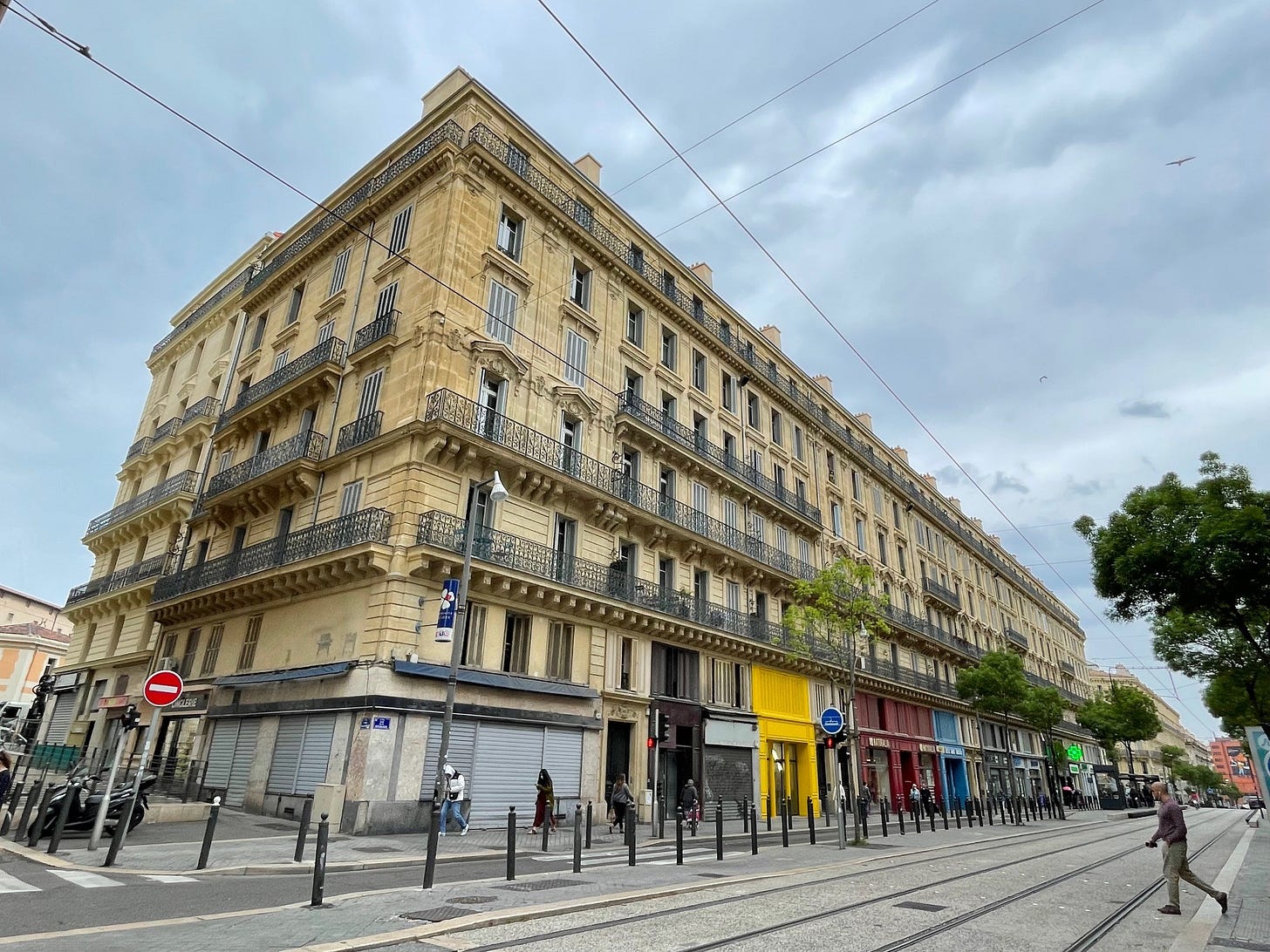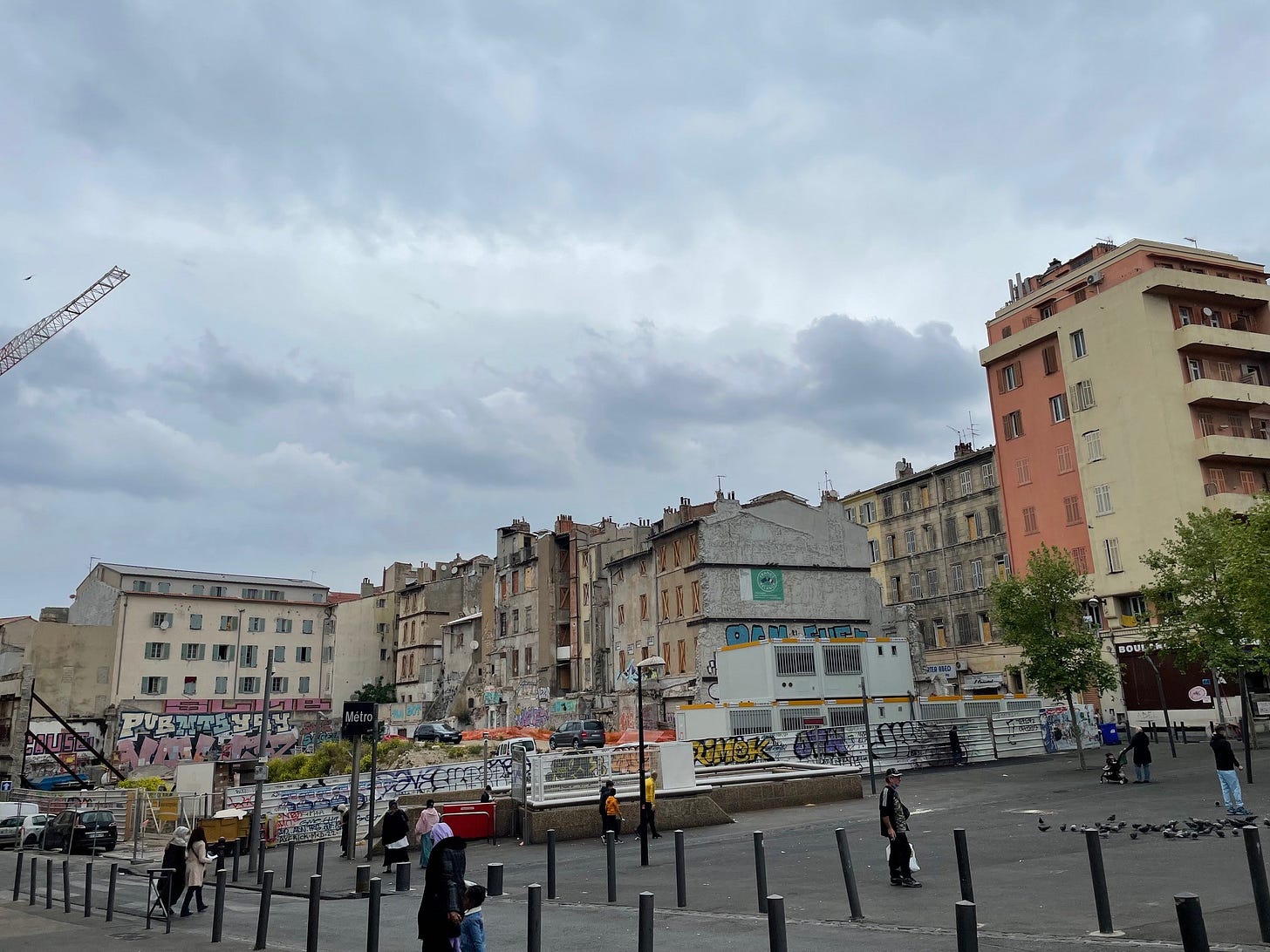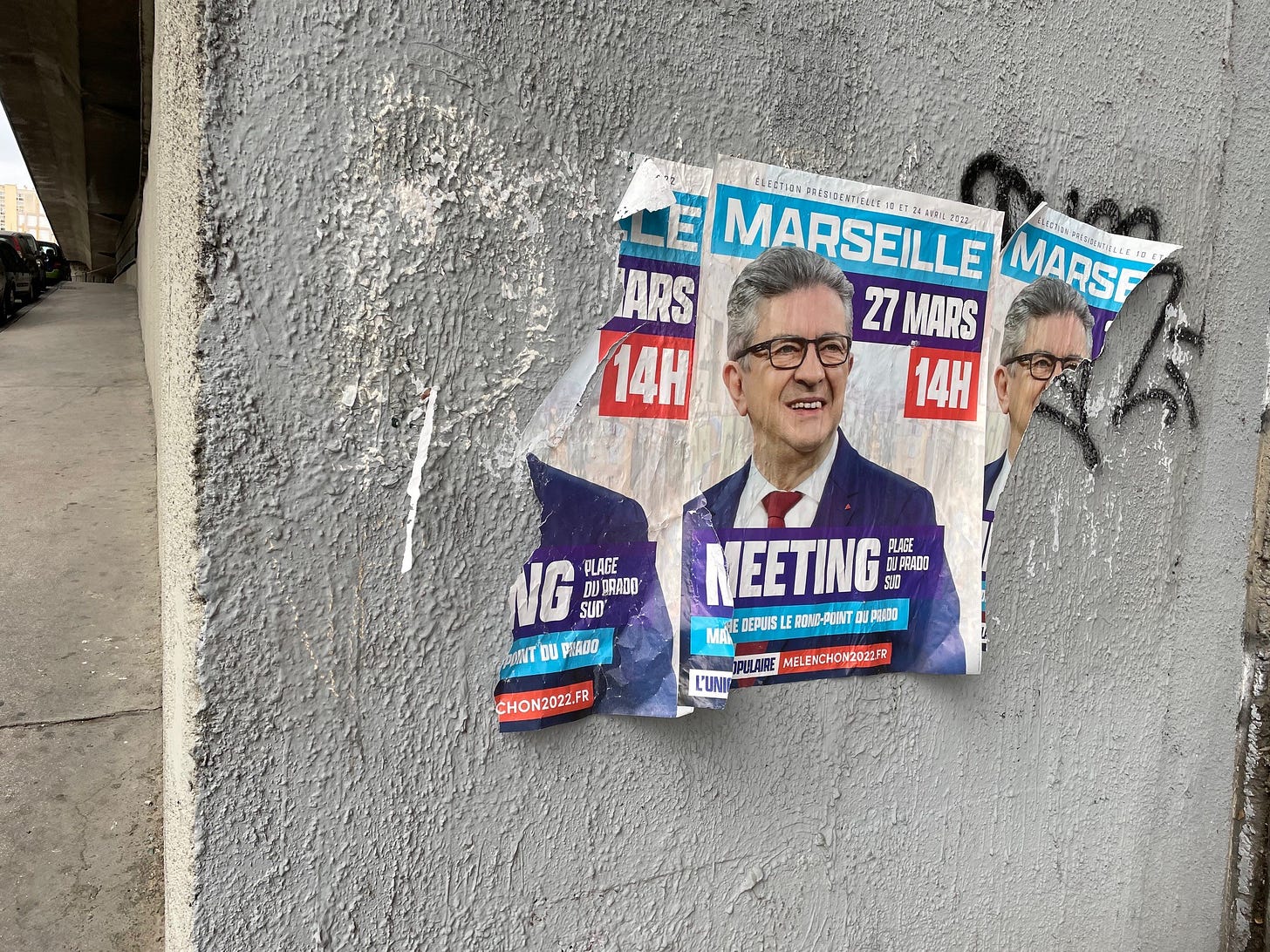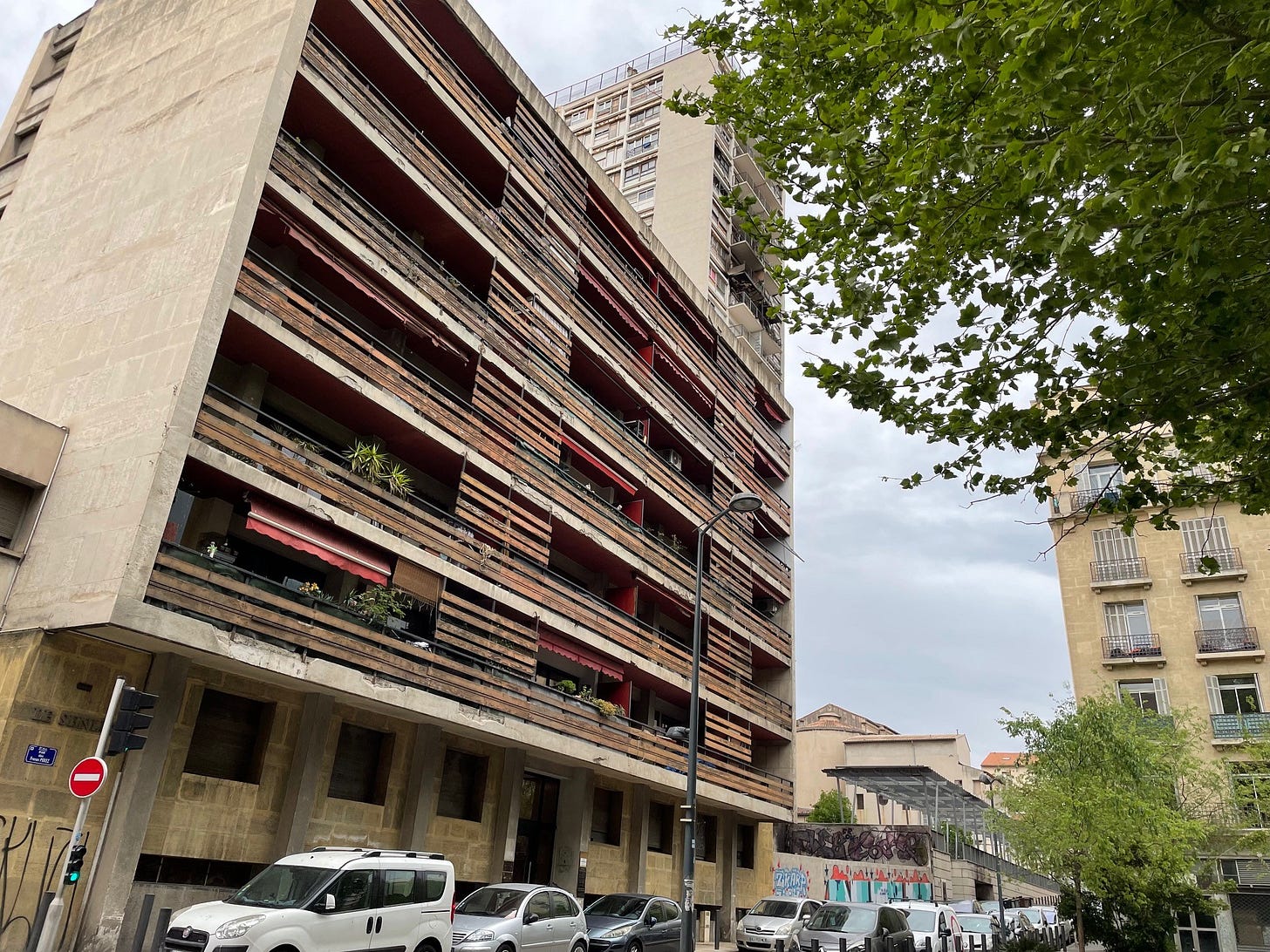Nous sommes Marseille
Of all the fault lines and battlegrounds up and down the country, perhaps none capture the mood of the French presidential election quite like Marseille.
The battle lines have been drawn, and the campaigns are drawing to a close. But what will likely happen on Sunday, and how have we arrived in a situation where Le Pen could be as close as 3 points away from winning a majority of the votes?
As we scan maps as examine the polls, what we are the stories we should be looking out for? What will determine who holds the keys to the Elysee for the next five years?
Ultimately, the key to winning the French presidency in 2022 are the 22% of voters who backed the far-left candidate Jean-Luc Mélenchon in the first round. Simply put, Le Pen needs to win over more of them than Macron does – and by some margin. If Macron can keep that equation at least balanced, or better, in his favour, then Le Pen’s path to the presidency is vanishingly small.
Marseille is nothing short of a Mélenchon stronghold. He won 31% of the vote here in April 10th, comfortably beating both Macron (23%) and Le Pen (21%). His performance here increased in line with his improvement nationally, and his departure from the race that Sunday leaves over 100,000 voters up for grabs in the city ahead of this coming Sunday’s second round contest.
Le Pen will need more than her fair share of them to topple the incumbent president.
In 2017, Macron won in France’s second largest city by an almost identical margin (64%-36%) to his victory in France overall (66%-34%). His performance here will be a strong indicator of his position nationally. As will Le Pen’s – if she is to win over Mélenchon voters and close to gap to Macron, this is exactly the kind of place where inroads must be made.
It is no surprise then that Macron was here himself just a week ago, holding a major rally on the city’s docks in which he promised to revolutionise his green credentials. A clear pitch to the politics of those who supported Mélenchon the Sunday before.
To understand Marseille is to understand the French presidential election. And to understand Marseille, you have to walk through its 3rd Arrondissement. One of poorest areas in all of France, it is a patchwork of ramshackle housing, vibrant pops of colour and sound, and endless construction projects.
Here, Jean-Luc Mélenchon won no less than 58% of the vote in the first round. He and his ‘La France Insoumise’ movement campaigned hard on tackling inequality and poverty, and raising taxes on high earners.
We in the Anglophone world typically associate with left-wing voting and activism with student activists, or white middle-class, well-educated urbanites. But Marseille’s 3rd is not at all like this. It is multicultural, multi-dimensional, and economically extremely marginalised.
The hillside arrondissement contains a University, a hospital, a large cultural centre, and some of France’s most destitute streets. Students, migrant workers, refugees, manual labourers on lunch breaks, and the long term unemployed all mix and move along together here in what at times seems like a fluid motion, and at others a chaotic ramble of sights and sounds.
This mixing pot of different peoples and high economic deprivation – both in terms of the area itself and Mélenchon’s base – goes a long way to explaining why far-left voters here in France don’t behave in predictable or straightforward ways in run off votes. It is a coalition, in the broadest sense of the term.
Moving through the 3rd, it is feels as though there is no second round election vote at all. On corners and on pillars at regular intervals are posters announcing Mélenchon campaign rallies or messages. There are even are few images of Phillippe Poutou, of the ‘new anti-capitalist party’, dotted around.
But nothing of Macron, nor Le Pen. There is no ‘ground game’ here. No electoral machinery. If this is a huge battleground, you wouldn’t know it.
Outside an Islamic centre in the South East of the arrondissement, two men lambast their options for Sunday’s vote. “Both are bad choices for France”, says one. The other shakes his head, adding “toujours” (always).
Later, I meet Dr Joseph Downing for a walk around some other areas in Marseille where Mélenchon also enjoys strong support. Joseph is a long term Marseille resident, and an expert on all things political in France.
I ask him about the lack of campaign activity across the city, and he smiles, saying, “it’s almost like there isn’t an election at all, right?”
Apathy, as it turned out, is not at all hard to find. But it is not political apathy; Marseille is a political city, make no mistake. This apathy is specifically directed at the choice now in front of so many voters who backed a candidate promising complete economic transformation for areas like Marseille’s 3rd earlier in the month.

We sit in Cours Julien square, an area where Joseph tells me anti-capitalist and anti-gentrification movements will regularly take to the streets to (sometimes violently) protest against the arrival of chain stores and even new infrastructure projects.
These young, highly politically active students and middle class agitators are the wing of Melenchon’s support with which English-speaking politics is perhaps more familiar in terms of its visions of the far-left, but they are just one group within his church.
Joseph puts Mélenchon’s strong success in the city largely down to the extremely challenging financial situation that so many people in and around Marseille face day to day; “these are people with genuine economic grievances”, he said, who have been “taken for granted” by old established French political parties.
Those same parties (the Socialists and Republicans) now face electoral ruin, gathering just 7% of the vote between them in the first round.
On a walk down through Marseille’s 1st Arrondissement and into its 2nd, we pass the site of a building collapse in the Rue D’Aubagne, located in neighbourhood of Noailles. Eight people died as two housing units fell to the ground in 2018.
Destitute housing situations are commonplace here, Joseph tells me, and little is ever done – despite the city council themselves bringing many of them under their control.
Though very little to do with his administration, the scene here in Noailles is a perfect capsule of the frustration and disdain which people feel here toward Macron and the French government.
There is a deep sense of neglect, of being ‘left out’ and ‘left behind’, and a complete lack of urgency. Even today, four years after the event, the site remains completely empty – the pace of progress is excruciatingly slow.
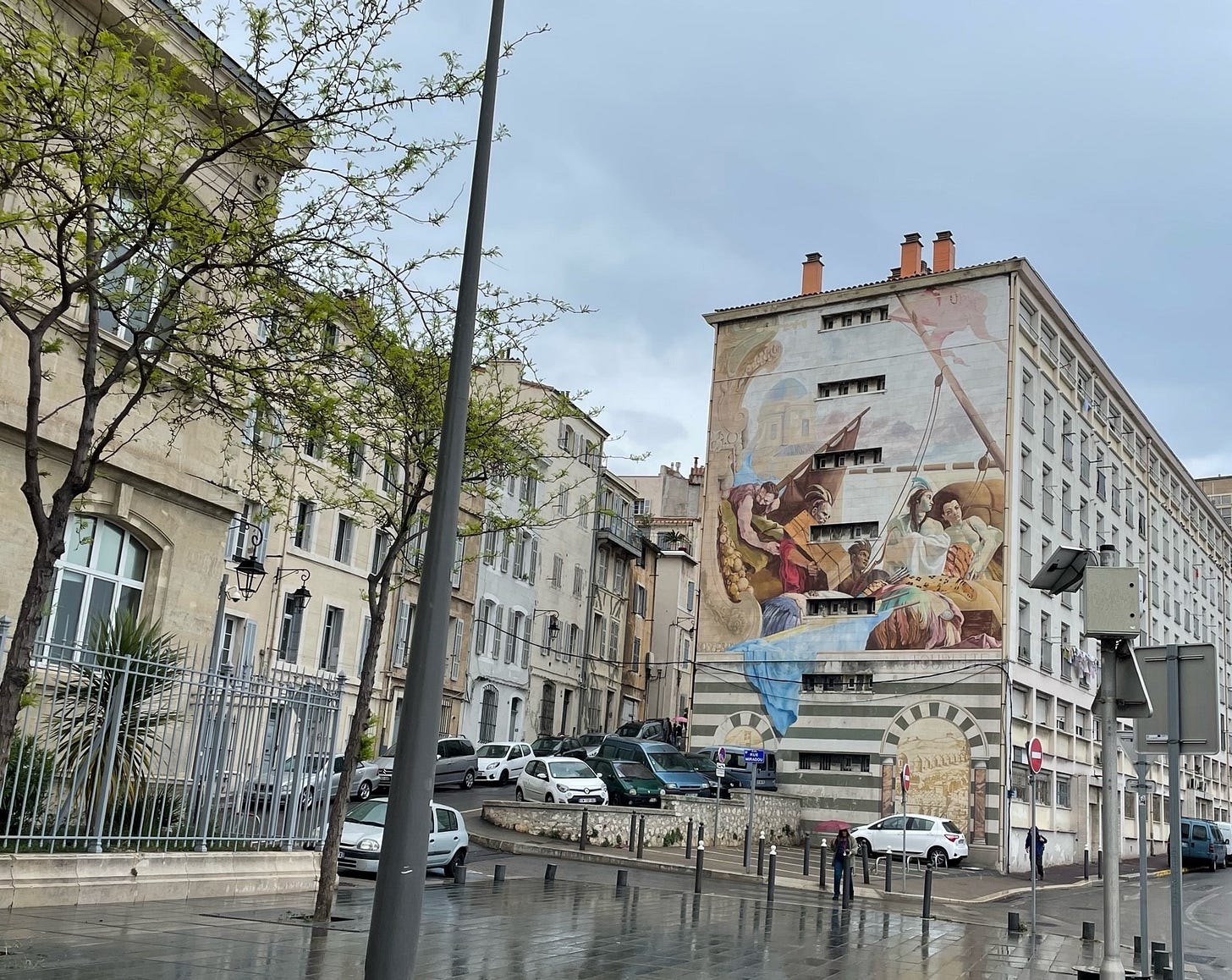
What does all this mean for the second round vote? Will these economically deprived, frustrated, and apathetic areas turn to the far-right?
Looking at the aggregate figures, according to the polls, Le Pen has not managed to close the first round gap on Macron. In fact, the president’s lead has grown significantly in the last ten days, putting him now around 10 to 12 points ahead.
But the lead could be fragile. It’s hard to imagine certain elements of Mélenchon’s coalition turning to the far right, but could she peel away those for whom his campaign messages on economic inequality and poverty are not just slogans, but lived experiences?
According to the latest YouGov polling released today, still one quarter (24%) of his voters from the first round intend to ‘vote blanc’ on Sunday, and one in five either do not yet know what they will do (11%) or do not intend to even vote (9%).
If Le Pen were to be successful in convincing a big chunk of those dissatisfied, disengaged Mélenchon voters to back her ‘cost of living’ focused campaign, Macron’s lead could quickly evaporate. There are more than enough of them for Le Pen to capture and overturn the first round deficit.
But there was no sign in Marseille, and no sign in the polling published in recent days, of that happening. Furthermore, currently, Mélenchon voters who intend to go to the polls on Sunday are breaking 2:1 for Macron.
Although Le Pen has no doubt had some success in picking up economically marginalised voters, and some areas of cities like Marseille may well end up voting in her favour, in the end, apathy and begrudging support for the centrist Macron will most likely win out.

